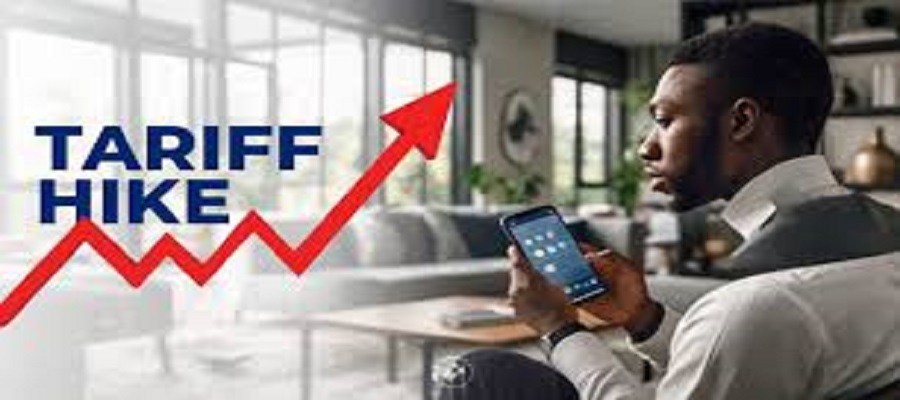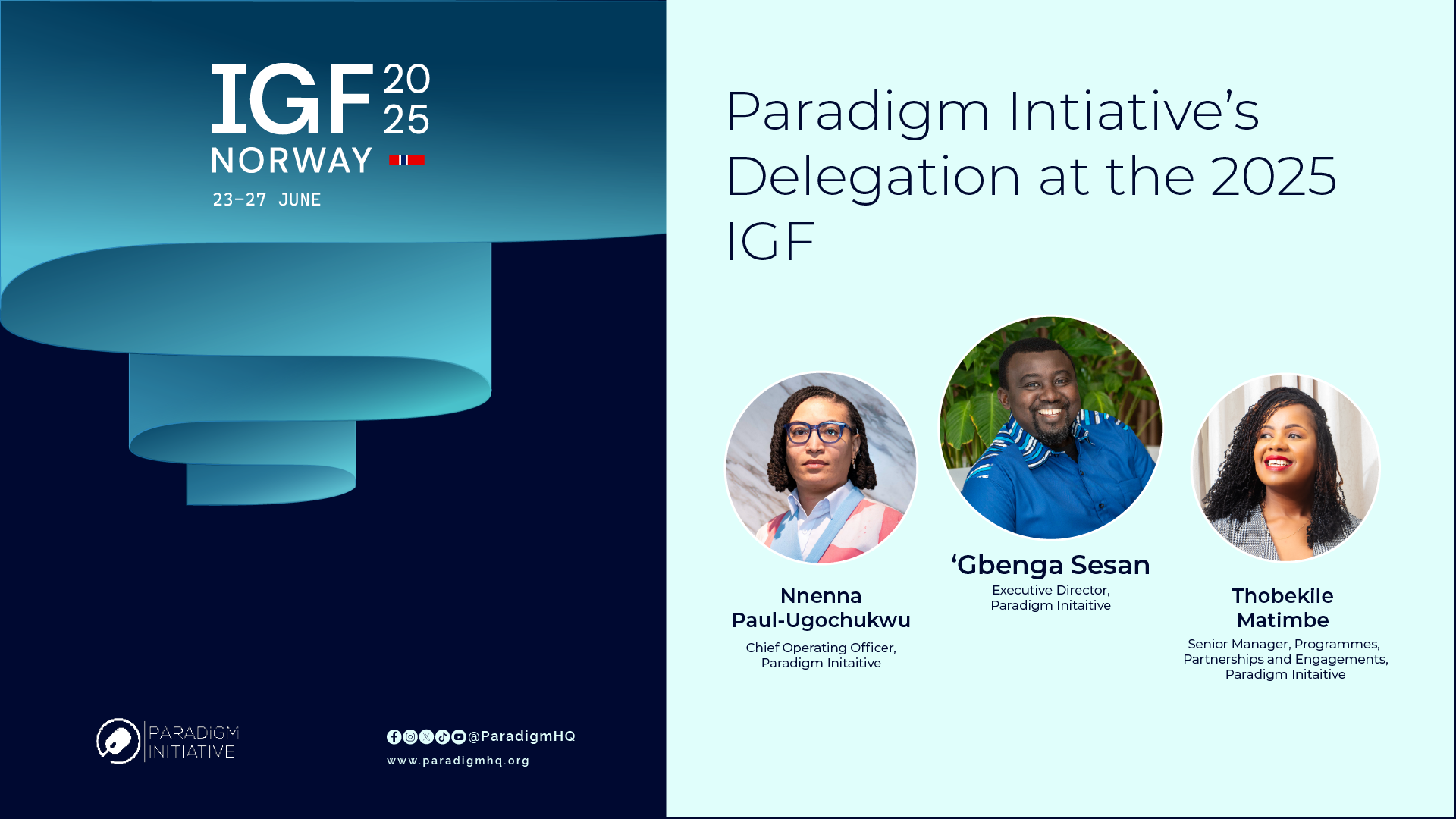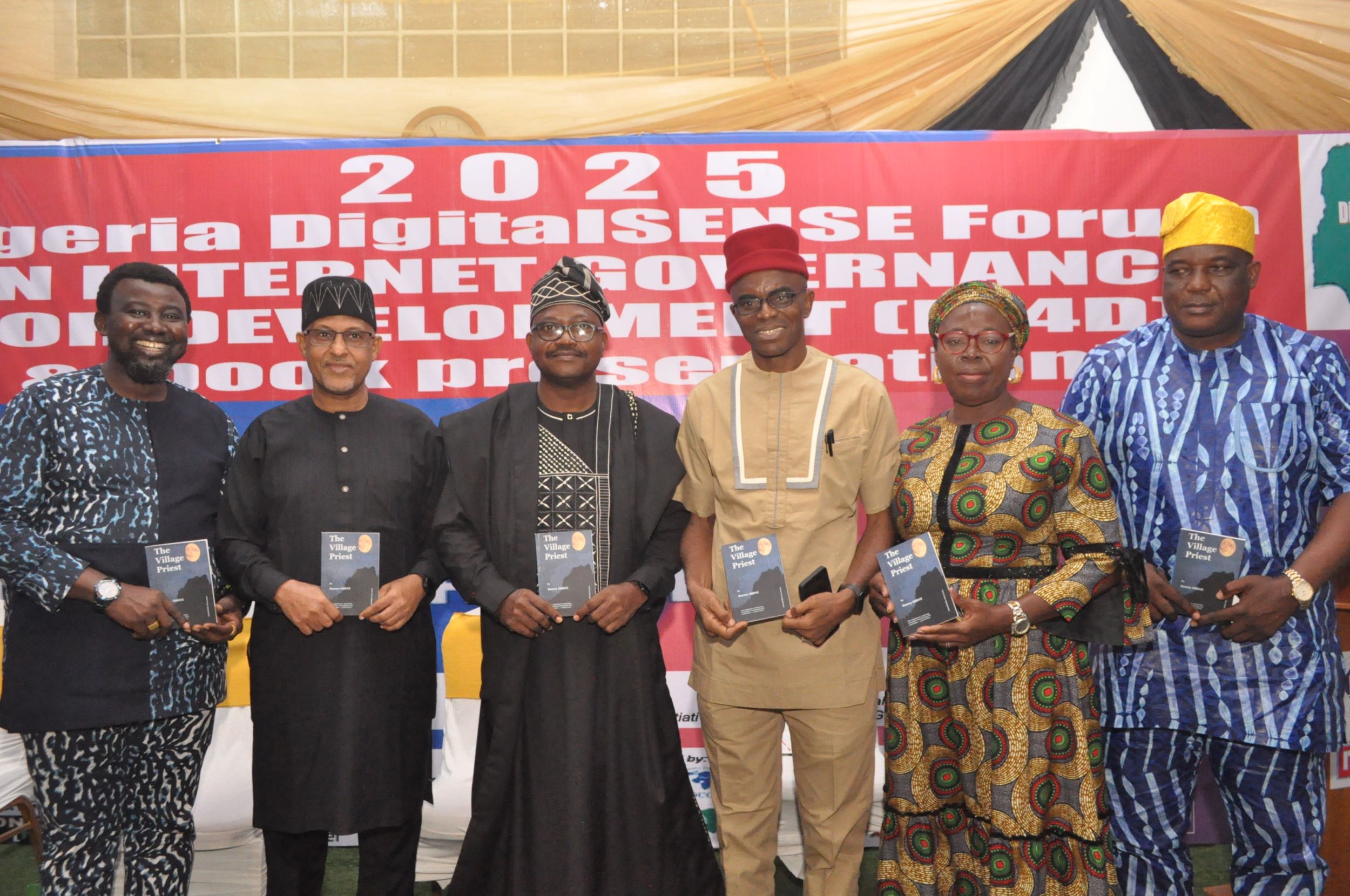Telecom
FCCPC Insists Telcos’s Tariff Hike must Translate to Improved Services

Federal Competition and Consumer Protection Commission (FCCPC) said on Wednesday that it has accepted the decision of the Nigerian Communications Commission (NCC) to approve a 50 per cent hike in telecommunications tariffs, down from the 100 per cent hike proposed by telecom operators.

FCCPC acknowledged the intense pressure faced by the NCC over the years to approve tariff increases due to the rising operational costs experienced by telecom operators, which became more pronounced in recent times.
It commended the NCC for adopting a deliberate and measured approach by rationalising the tariff adjustment and linking it to commensurate improvements in service quality, while implementing other measures to mitigate the impact on consumers.
However, the commission strongly insisted that the tariff hike must translate to significant quality and improved services, stressing that it will resist a situation where Nigerians are charged for poorly delivered services, particularly in areas like voice calls, data, and other services with the tariff hike.
FCCPC, in a statement on Wednesday by Ondaje Ijagwu, director of Corporate Affairs, asked telecom operators to disclose all key details upfront, including the cost, validity period, and specific inclusions of a plan.
It added: “Consumers can also expect a mandatory disclosure table from the service providers to enable them to make informed decisions without worrying about unexpected charges or surprises.”
The commission further noted that consumers have consistently expressed a desire for measurable improvements in service quality before any tariff increases are implemented. “Issues such as network congestion, dropped calls, inconsistent internet speeds, unusual data depletion, and poor customer service have remained prevalent concerns. It is, therefore, crucial that tariff adjustments directly translate into demonstrable and tangible service enhancements for consumers.”
FCCPC asked that telecom operators prioritise visible and measurable improvements in network reliability, speed, accessibility, and customer service as part of any tariff adjustment, insisting that the rationale for the increase must be reflected in better services for consumers who, apparently, rely on telecommunications for both personal and business purposes.
The commission suggested that operators allocate increased revenues responsibly, with an emphasis on infrastructure development and service delivery improvements, stressing that clear mechanisms must be established to monitor how the funds are utilised, ensuring that consumers directly benefit from the adjustments.
“Operators must also clearly communicate the rationale for the tariff adjustments to consumers, ensuring that consumers are fully informed about the nature of the changes, the benefits, and how it aligns with efforts to improve service delivery and infrastructure,” it added.
The commission referenced its recent Memorandum of Understanding (MoU) with NCC, which, it said, provided a unified framework to oversee the implementation of the tariff adjustment in a manner that meets the needs of consumers.
It said the partnership ensures that the increase does not become a justification for exploitative practices, but an opportunity to foster fairness, transparency, and accountability in the telecommunications sector.
“As Nigeria embraces rapid technological advancements and increasing reliance on digital connectivity, it is imperative that the benefits of a thriving telecommunications ecosystem extend to all stakeholders, particularly consumers,” it added.
The FCCPC assured Nigerians that, together with the NCC, it will continue to pursue measures that uphold these objectives. “We are committed to closely monitoring the impact of the tariff adjustments to ensure compliance with established regulatory standards.”
It also reminded telecom operators that the FCCPC is actively working with NCC to address concerns raised by consumers during the transition period and beyond, and encouraged consumers to freely report any unfair practices or concerns through its official channels to ensure effective resolution.
Telecom
Lebara, New Operator Enters Nigerian Telecom Arena, Sells Minutes, Not Airtime

Lebara Nigeria has officially stepped into Nigeria’s bustling telecom market with the introduction of its unique 0724 number series—a bold move that promises fresh competition and a more transparent user experience.

Leveraging its status as a Tier 5 Mobile Virtual Network Operator (MVNO), the company is positioning itself not just as another telecom player but as a catalyst for change, offering innovative packages built on fairness and clarity.
From day one, Lebara Nigeria has been ready to compete with industry giants like MTN, Airtel, Globacom, and 9mobile, having secured full interconnectivity with all of them.
This critical footprint ensures that its voice and data services are accessible and of high quality nationwide.
Akin Adesokan, Lebara’s chief operating officer, highlighted the company’s strategic intent: “Our readiness with the 0724 series and full interconnect setup underscores our unwavering commitment to seamless integration, customer freedom, and market inclusivity.” Indeed, the company has taken considerable steps to ensure regulatory compliance and operational strength, leveraging its global expertise as an MVNO and its freshly minted licence under the NCC’s highest tier.
What truly differentiates Lebara’s offering is its unconventional pricing model. Eschewing traditional prepaid airtime, it sells voice bundles and data packages that align with real usage, not ambiguous credit deductions. “You buy minutes, not airtime. If your call ends in 30 seconds, you still have 99 minutes and 30 seconds left. That’s the kind of clarity and control we are bringing to Nigerian telecoms,” explained Samuel Alabi, head of Corporate Communications.
This clarity responds to a long-standing frustration among Nigerians, where ₦100 airtime often disappears quickly and opaquely. Lebara’s minutes-based system offers predictability and transparency—a refreshing contrast in a market hungry for accountability.
Lebara’s entrance is more than a marketing exercise; it’s a strategic diversification of Nigeria’s mobile ecosystem.
With over 220 million active mobile lines, Nigeria is Africa’s biggest telecom consumer.
The NCC’s move to licence 41 MVNOs, including Lebara, illustrates a policy shift aimed at introducing more competition and improving service quality. Technically agile and digitally native, Lebara leverages existing network infrastructure, augmented by automated systems—a lean operation compared to the capital-intensive MNO model.
he status quo. With strategic execution and continued regulatory support, this could mark the beginning of a new chapter: one where Nigerians no longer need to ask, “Can you hear me now?” but instead say, “Yes—and I know exactly what it cost.”
Telecom
PIN Pushes for Equitable Digital Governance at World Internet Forum

As the 20th Global Internet Governance Forum (IGF) opens in Lillestrøm, Norway, leading pan-African social enterprise Paradigm Initiative (PIN) is championing grassroots voices in global digital policy discussions.

Running from June 23–27 under the theme “Building Digital Governance Together,” the IGF unites stakeholders from civil society, governments, the private sector, and technical communities to tackle pressing digital issues such as access, AI ethics, surveillance, and content moderation.
The discussions also contribute to the upcoming World Summit on the Information Society (WSIS)+20 review in December 2025.
PIN’s participation comes at a time when digital governance decisions are increasingly shaping the future of billions. “It is essential that grassroots solutions are heard,” said ‘Gbenga Sesan, Executive Director of PIN. “At PIN, we believe that meaningful digital inclusion requires more than just connectivity.
“It demands inclusive, progressive and sustainable policies and frameworks built taking the realities of grassroots stakeholders into consideration.”
Representing PIN at IGF 2025 are Sesan, Chief Operating Officer Nnenna Paul-Ugochukwu, and Senior Manager for Partnerships and Engagements Thobekile Matimbe. They will engage in strategic sessions on topics like connectivity in excluded communities, AI accountability in content moderation, and human rights in emerging tech.
The team will also participate in coordination meetings with partners including Meta, UNESCO, the Freedom Online Coalition, and GPD.
PIN’s presence at the forum underscores its ongoing mission to embed digital rights within grassroots realities and to ensure that global internet governance frameworks are inclusive, accountable, and responsive to the needs of marginalised communities.
Telecom
Remmy Nweke’s “The Village Priest” Garners High Praise from Tech Community

Information and Communications Technologies (ICT) stakeholders have applauded the latest in bookshelf by Remmy Nweke, the Village Priest, which was presented at the recently concluded Nigeria DigitalSENSE Africa Forum on Internet Governance for Development (IG4D) in Lagos.

The presentation and review of the book, “The Village Priest” by Ogbuefi Remmy Nweke, largely described as a powerful narrative explored the intersection of tradition and innovation in rural Igboland, received widespread acclaim, with its themes resonating deeply with the event’s focus on ‘Global Digital Compact: Opportunities for Multi-stakeholders in Nigeria.’
The highly anticipated review was delivered by Mr. ‘Gbenga Sesan, Executive Director of Paradigm Initiative (PIN), a renowned social entrepreneur and advocate for digital rights and inclusion in Africa.
Sesan lauded Nweke’s prose fiction for its insightful portrayal of “innovative technology adaptation transforming rural communities,” describing it as “a careful work of cultural documentation, offering not just a story but a chronicle—a record of transition that many rural and even urban African communities continue to live through.”
Sesan’s review highlighted the book’s central character, Ogboo AniEze, the revered chief priest of Ilimefo, whose life is dedicated to preserving his village’s customs. The narrative unfolds as “the village and its people, their traditional practices and strong cultural heritage at the crossroads!” with the arrival of GSM technology—a “strange and mysterious piece of technology” that initially challenges Ogboo AniEze’s traditional views.
The review detailed the chief priest’s journey of reconciliation, from initial fear of GSM eroding cultural heritage to a profound understanding that the technology “also offered opportunities for growth, development, and connection with the wider world.” This transformation leads to a new era of harmony in Ilimefo, where “tradition and modernity coexisted in balance.” The book beautifully illustrates how mobile phones become “a powerful tool for preserving the village’s cultural heritage” and how interfaith collaboration, particularly with Catholic priest Fada Ekie, fosters a “fusion of traditions” and a “new spiritual identity.”
“It teaches us, without preaching,” Sesan concluded, “that true innovation is not in abandoning our roots, but in strengthening them with new tools.”
This year’s Nigeria DigitalSENSE Forum, was presided over by Dr. Jimson Olufuye, former President of the Information Technology (Industry) Association of Nigeria and a member of the UN Secretary-General’s IGF Multistakeholder Advisory Group (MAG), served as a crucial platform for discussing the future of digital governance.
Olufuye also commended the author, Nweke for his perseverance in serving the ICT industry as well as endearing documentation of the sector.
For the Managing Director, Internet Exchange Point of Nigeria, Mr. Muhammed Rudman, the latest book by Nweke depicts the gift of in depth creativity and urged him on, despite the challenges the sectorial environment throws at industry players.
Organized by ITREALMS Media and hosted under DigitalSENSE Africa (DSA), an At-Large Structure certified by ICANN, the forum brought together key partners including the Nigerian Communications Commission (NCC), Internet Exchange Point of Nigeria, Internet Society Nigeria chapter, Association of Licensed Telecoms Operators of Nigeria (ALTON), and ICANN.
The NDSF series, running since 2009, continues to “motivate public discourse and create awareness on the technological cum business benefits of rapidly advancing technologies capable of impacting on Internet Governance, Internet Protocol (IP) addresses and domain name industry, access and affordability,” while offering a vital platform for industry networking.
The event not only celebrated the literary achievement of Ogbuefi Remmy Nweke, a multiple award-winning journalist, but also reinforced the commitment of ICT stakeholders to fostering digital inclusion and innovation across Nigeria.

 Telecom2 days ago
Telecom2 days agoMTN Says New N6.98 USSD Charge Won’t Affect Airtime Recharge

 Telecom2 days ago
Telecom2 days agoNnaemeka Ani Calls on African Techies to Rewrite the Narrative

 General News2 days ago
General News2 days agoStudy Reveals 7% of Industrial Organizations Tackle Vulnerabilities Only When Necessary

 E-Financial2 days ago
E-Financial2 days agoSofri Rejigs Digital Platforms for Better Customer Experience

 General News2 days ago
General News2 days agoNITDA, NCFRMI Forge Strategic Alliance for Inclusive Digital Transformation of Displaced Nigerians

 E-Financial14 hours ago
E-Financial14 hours agoS&P Global Ratings Downgrades Ecobank Nigeria’s Credit Rating to CCC-, Outlook Negative

 E-Business14 hours ago
E-Business14 hours agoOver 7m Streaming Accounts’ Credentials were Leaked in 2024 – Report

 Telecom2 days ago
Telecom2 days agoCrypto Scam Unmasked: U.S. Recovers Record $225m in Global Fraud Bust
























